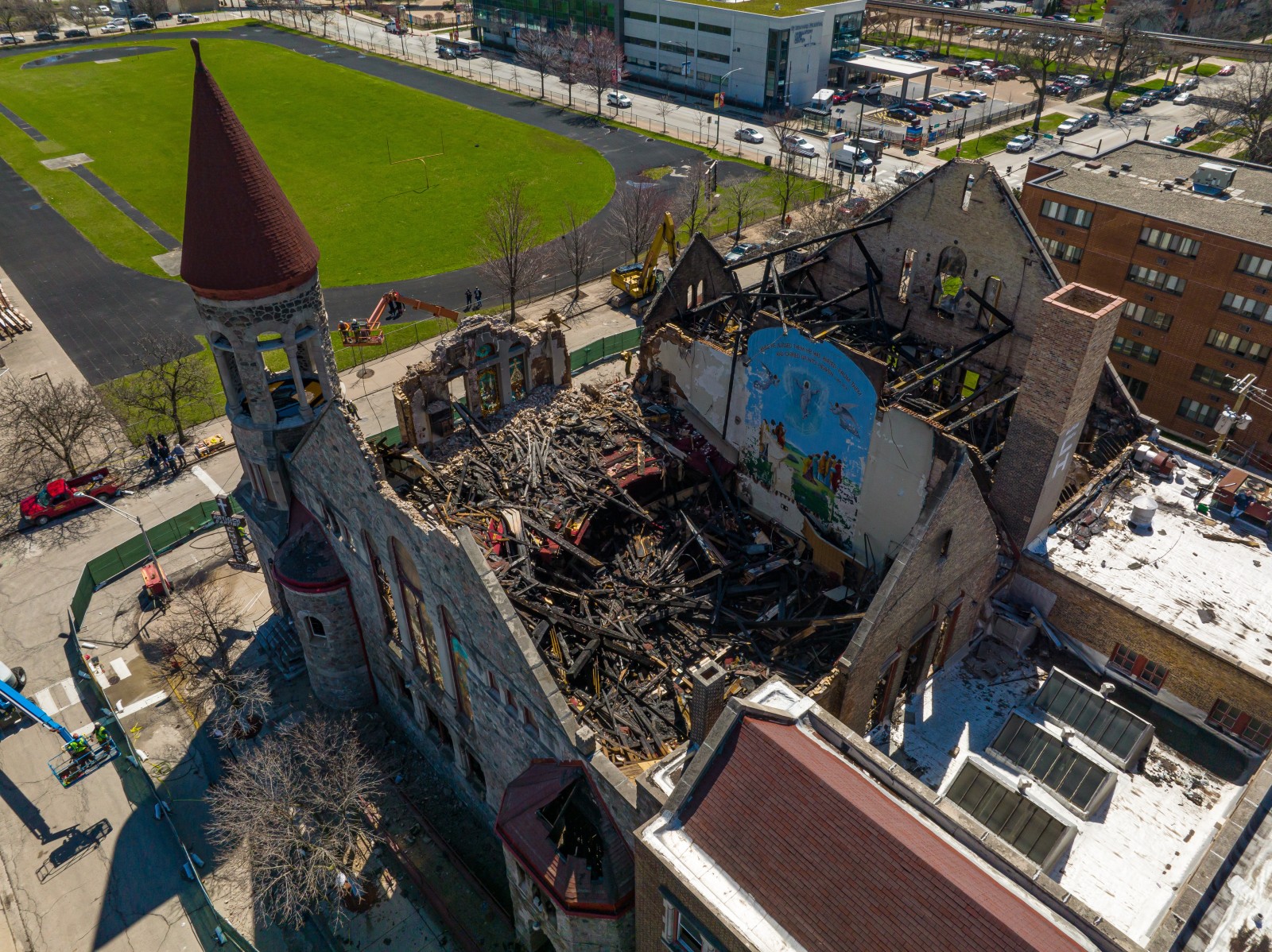
These photos show the last days of one of America’s historic Black church buildings
The Rev. Gerald M. Dew pledges to rebuild Antioch Baptist Church, a staple in Englewood for decades, which was gutted by an accidental fire.
By Vashon Jordan Jr., Cassie Walker BurkeOn Thanksgiving Day 1959, the growing congregation of Antioch Missionary Baptist Church wrote the final check that would close out the purchase of 415 W. Englewood St. The congregation, which had moved into the building the year before, raised $200,000 to own the church outright, plus another $75,000 for renovations.
Every member of the Black congregation was given a souvenir deed for the purchase. The church would go on to become an anchor of the social justice and fair housing movements on Chicago’s South Side.

Six decades later, on Good Friday, a fire ignited by a roofer’s propane torch ripped through the building shortly after services. Rekindling material made the destruction worse in the following days, and ultimately, the City of Chicago quickly moved to demolish the entire building because it was no longer “structurally sound.”
The congregation plans to rebuild and has already relocated its services to a nearby funeral home. By Thursday midday, workers were cutting the chains and metal rods that held the large neon Antioch sign – an emblem in the Englewood neighborhood – as passersby somberly looked on.

Chicago photographer and WBEZ contributor Vashon Jordan Jr. captured the moment of the church’s great sign being taken down and sent a drone overhead to capture the images above as demolition happened. “The drone puts everything in perspective,” said Jordan. “This church is literally in the center of the Englewood neighborhood. The facade is up, and the inside is gutted.”

Some relics – like the vintage sign – will be preserved, though a signature mural of Jesus could not be saved because of its location on an interior wall. The city said in a statement that it “is not technically feasible to cut, lift, and remove the [mural] wall intact” without risking a full collapse that would threaten the safety of workers.

The Rev. Gerald M. Dew, who is only the fourth leader in the church’s history, has pledged to rebuild and already social media campaigns have begun to raise money for a new building. Proceeds from “Antioch Strong” T-shirt sales, linked on the church’s Facebook page, will go to the campaign.

The congregation plans to eventually relocate to a school nearby until a new building is constructed. Without skipping a beat, services resumed on Easter Sunday in person and streamed live to watch online.
Dew told his congregation on Easter Sunday that there is sorrow in loss but great power in resurrection.

Referencing the Biblical story of Jesus Christ’s crucifixion on Good Friday, Dew said, “Hearts were broken on that Friday, tears flowed on that Friday, and hopes were dashed on that Friday. These are the emotions we are so familiar with because we just experienced an awful Friday.”

As Dew referenced what came next in the Bible – Jesus’s ascent to heaven, which is celebrated on Easter Sunday – there were tears and applause. “Thank God for resurrection Sunday,” said Dew. “Amen.”
Vashon Jordan Jr. is a freelance photojournalist and WBEZ contributor. Follow him @vashon_photo. Cassie Walker Burke is WBEZ’s external editor. Follow @cassiechicago.
